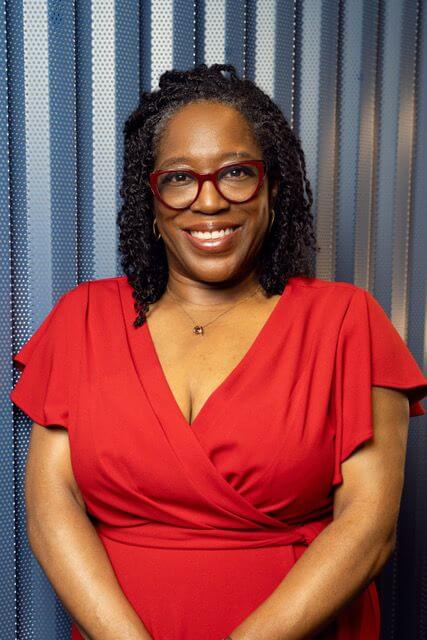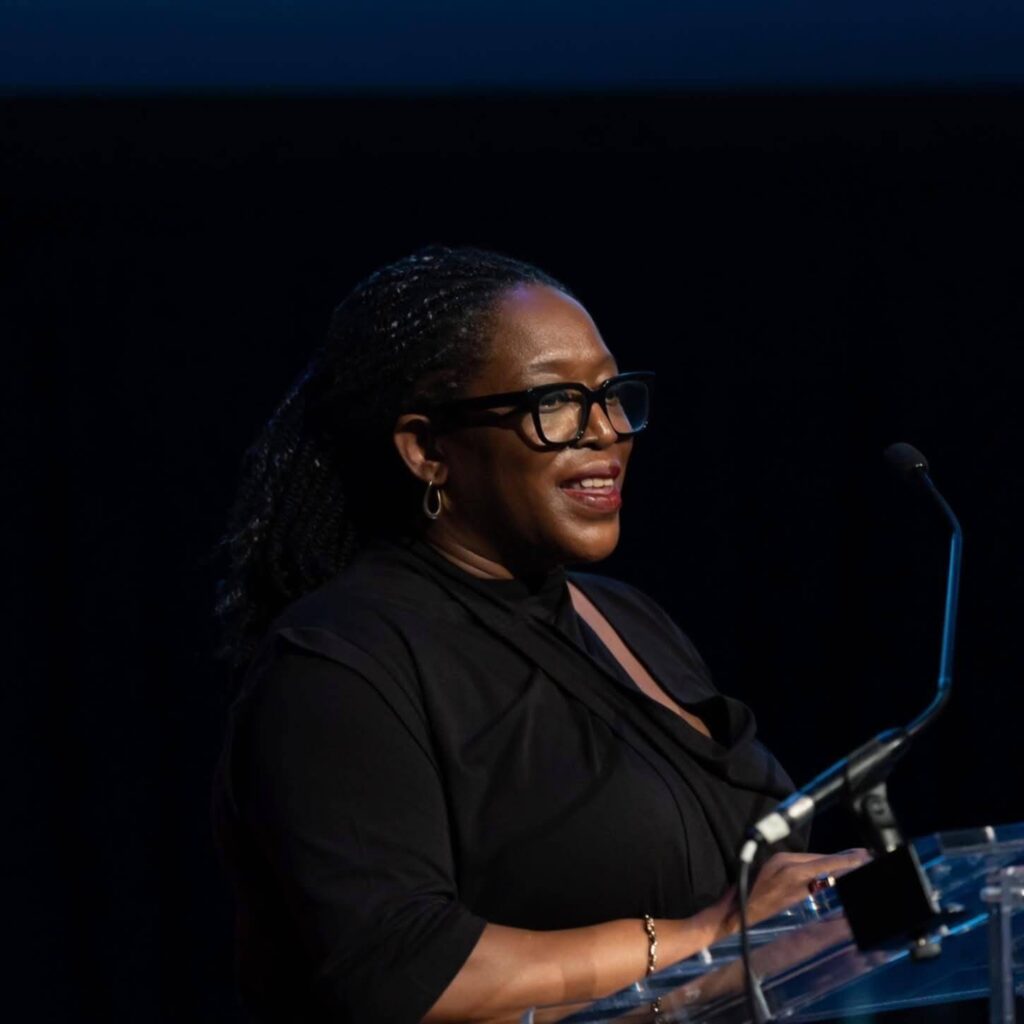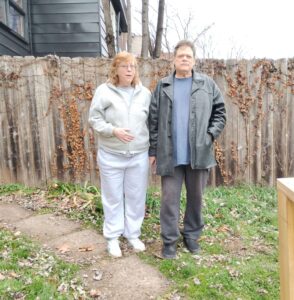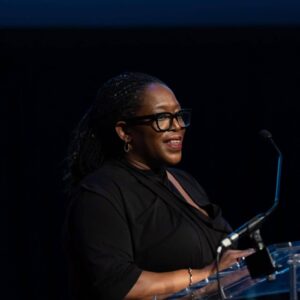Joyce Howard is one of those people who’s always looking around the corner toward what’s next. Whether she’s pursuing a new degree or uplifting Black leaders and their allies through her work as Vice President of Development and Corporate Partnerships at The Advanced Leadership Institute (TALI), she approaches every role with the same question: How can I give more?
As Catapult’s new Board Vice President, we’ve experienced that spirit of generosity firsthand. Howard brings sharp insights and a wide-ranging background that help ensure we continue to grow strategically and with intention.

Her career has spanned journalism, business development, and community leadership. She began as a content editor, page designer, and copy editor at The Pittsburgh Post-Gazette, where she honed her eye for storytelling and community engagement. Later, she managed operations at Everyday Café in Homewood — a social enterprise focused on community engagement and workforce development — before joining Innovation Works as a Business Development Manager. There, she led fundraising efforts and programs like the BNY Mellon UpPrize Social Innovation Challenge, building partnerships that strengthened Pittsburgh’s innovation ecosystem.
A proud member of the Pittsburgh Alumnae Chapter of Delta Sigma Theta Sorority — celebrating 30 years of membership in 2025 — Howard continues to channel her deep commitment to innovation and community into everything she does. We sat down with her to talk about her journey, leadership philosophy, and what she sees as essential for Catapult’s longevity.
You’ve had such a long and varied career across journalism, business development, and operations. When you look back, what would you say is the through line connecting it all?
That’s a great question. I’d say the through line has always been working behind the scenes to understand how things work and using that insight to support others — by telling stories, strengthening communities, or lifting up great work.
I started out in journalism — my dream as a kid was to be an editor at Essence magazine — but I quickly found my niche in copy editing, page design, and headline writing. I loved helping reporters and photographers tell their stories. That carried through when I later taught design and journalism as an adjunct professor at the University of North Carolina at Chapel Hill, encouraging students to pursue careers in the field.
When I transitioned into economic and workforce development, the same idea guided me: how can I help people reach their goals? Whether it’s entrepreneurs, young people, or Black executives and their allies in my current role at TALI, it’s always been about helping others be the best they can be and reach their next level.
Was that shift from journalism to economic development intentional?
Not exactly. Around 2007–2008, there were mass layoffs in the newspaper industry. I’d always been someone who asked, “What’s next?” — so I leaned into another skill set I had. While I was working as a journalist, I’d gone to law school at Duquesne University, focusing on economic development and non-profit organizations, and realized I could merge my communications background with that training.
I’m a lifelong learner. I’m always thinking, “What else can I study or master to keep growing?” That curiosity has really shaped every stage of my career.
Tell us more about your work at TALI. What makes it meaningful to you?
Interestingly, I first came to TALI as a participant in their Executive Leadership Academy. It was such an empowering experience — being in a room with Black executives from all different industries, learning together, sharing challenges, and supporting one another.
Now, as part of the team, I help elevate Black leaders and their allies through world-class executive education. We run programs like the National Executive Leadership Academy for senior leaders moving into the C-suite and the Emerging Leaders Program for rising managers. We also host frontline leaders workshops for those earlier in their leadership journey. We recently held our first two-day leadership conference with more than 150 participants, and the response was incredible. People left saying, “We just never knew that there was such a breadth of talent here in Pittsburgh hungry for this kind of development and connection.”
How has your background helped guide Catapult’s work as a board member?
I think my strength lies in asking thoughtful questions. Catapult President and CEO Tammy Thompson is such a big visionary — she dreams big and fast — and I like to slow things down a bit and ask, “How will this work? Who will be involved? What impact will it have?”
Beyond that, I’m a connector. If I see an opportunity or resource, I share it. For instance, I’ve connected people in my network to Catapult’s homeownership programs and even brought Catapult caterers into events at Innovation Works. It’s rewarding to see those small connections lead to real growth and opportunity for others.
Given today’s difficult fundraising climate, what do you think will be most important for Catapult’s continued success?
Storytelling — showing the tangible impact these programs have on real people’s lives. When you hear how many families were able to buy homes with the help of the RNIH program [editor’s note: the PA Housing Finance Agency’s mortgage program that Catapult has helped pilot and administer], or how many families were able to resolve tangled titles, or how many entrepreneurs grew their businesses through Catapult, it’s powerful.
Those aren’t just statistics — they’re stories of people building stability and legacy. When donors and partners see that, they understand that this isn’t charity; it’s about giving people the tools to transform their lives.
What excites you most about where Catapult is headed?
The intentionality. Catapult’s strength is that this is not a short-term mission — these are programs that build upon themselves. Whether you are looking to clean up your credit, buy a home, or grow your business, Catapult’s programs help people make long-term, habit-building investments in themselves. That is what changes communities and what makes Catapult stand above the rest as a gem.
Any final reflections you’d like to share?
Catapult truly inspires me to do better. Every time I leave a board meeting, I say, “I want to work here, too!” The culture, the passion — it’s contagious. I was recently asked to serve as Vice President of the Board, and I’m deeply humbled. I often leave meetings wondering how I can give more.
As I enter what I call “the second half” of my life, I want to focus on being a servant leader — and Catapult has been such a gift in that journey. I’m grateful to be part of it and committed to helping preserve its mission for years to come.





